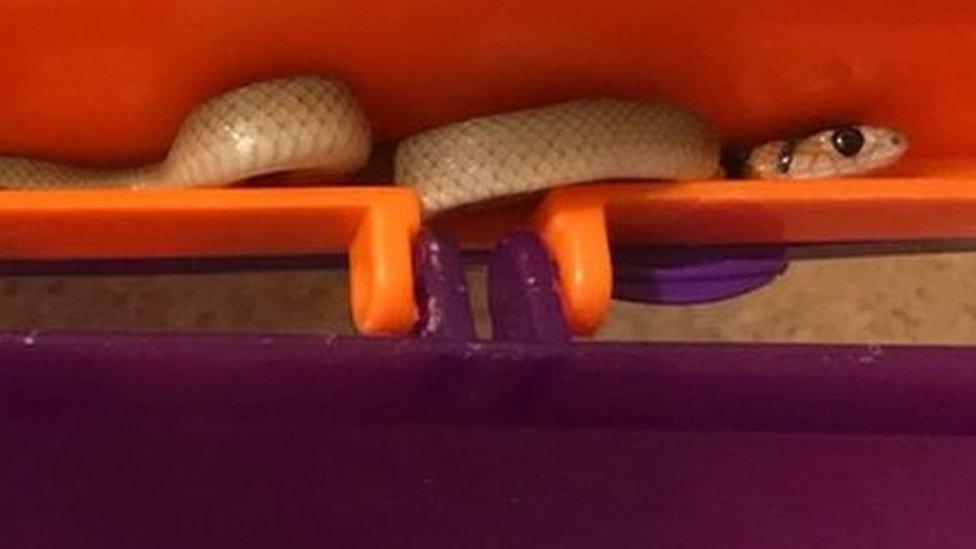Python found with 500 ticks treated for anaemia
- Published
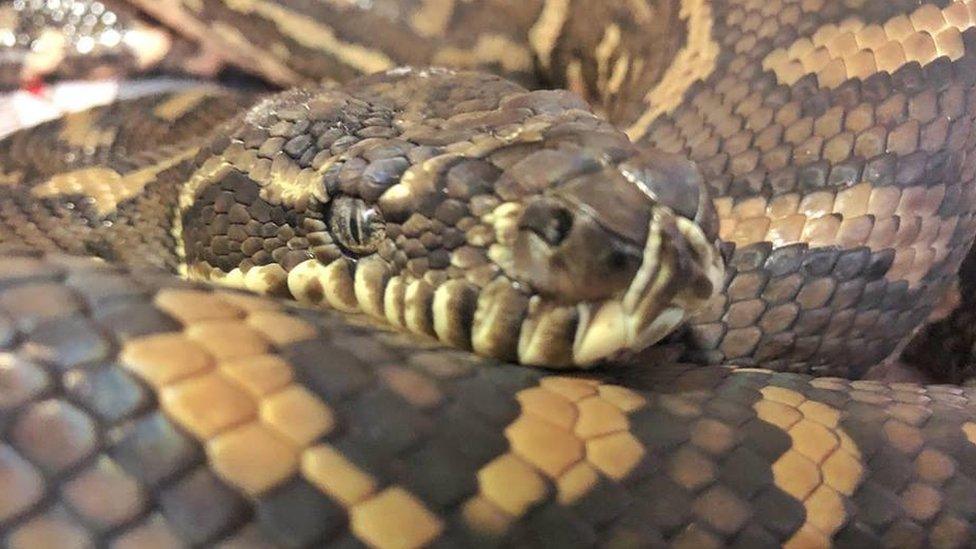
The carpet python, nicknamed Nike, is now free of ticks
A snake which had more than 500 ticks removed from its body has been left weak and suffering from anaemia, vets in Australia say.
Snake catchers rescued the carpet python from a backyard swimming pool on the Gold Coast in Queensland last week.
The snake, nicknamed Nike, was treated by vets for a "nasty infection".
"[This] may have caused his immobility, allowing the ticks to take advantage of him," the Currumbin Wildlife Hospital said in a statement posted online.
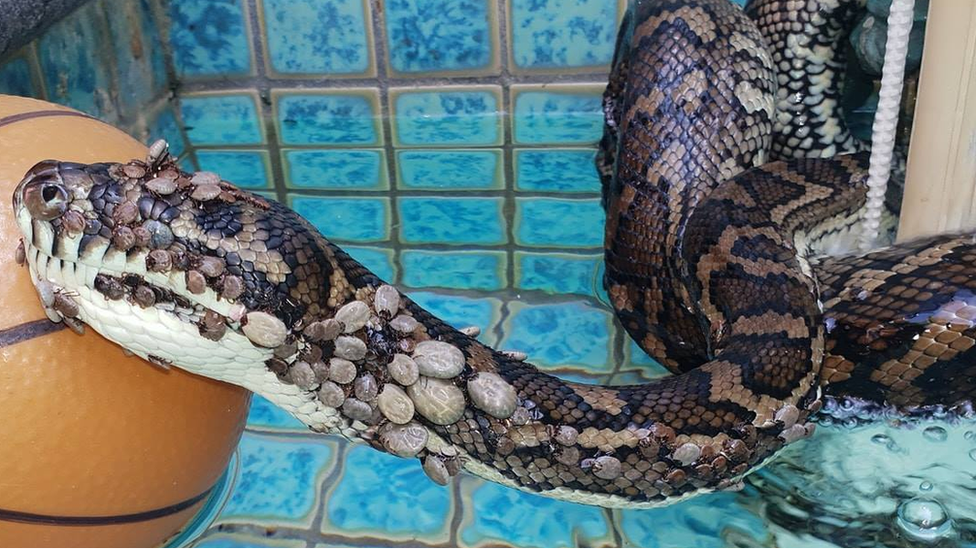
Vets said they removed 511 ticks from the snake
The wildlife service said it hoped to release the python back into the wild in coming months.
The snake was now with an experienced carer, the hospital said.
"Nike isn't out of the woods yet, but we are hopeful he will make a full recovery," the not-for-profit service said.
Ticks can cause anaemia - a deficiency in red blood cells - by feeding on the blood of a host animal.
Tick-covered koala
The hospital said it had also recently treated a joey koala which was found covered in more than 100 ticks.
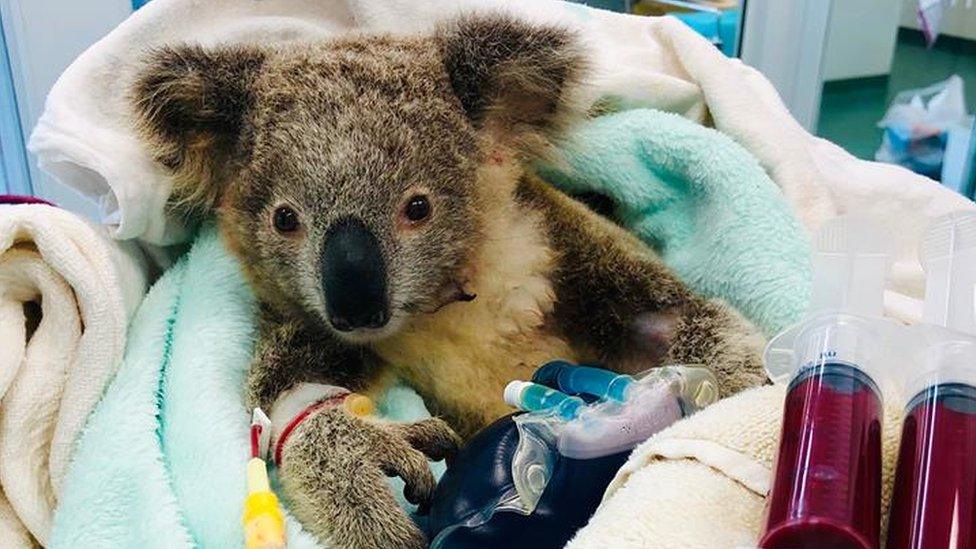
It took vets about two hours to remove the koala's ticks
The marsupial had been separated from its mother when it was rescued, said wildlife group Friends of the Koala.
The group said it believed the marsupial had attracted so many ticks because it was sitting on the ground, a possible sign that it was sick or injured.

You may also be interested in:

Experts say it is common for animals to attract small numbers of ticks and other parasites.
However, if an animal is weak, the parasites can quickly multiply and overwhelm an animal's immune system.
- Published18 January 2017
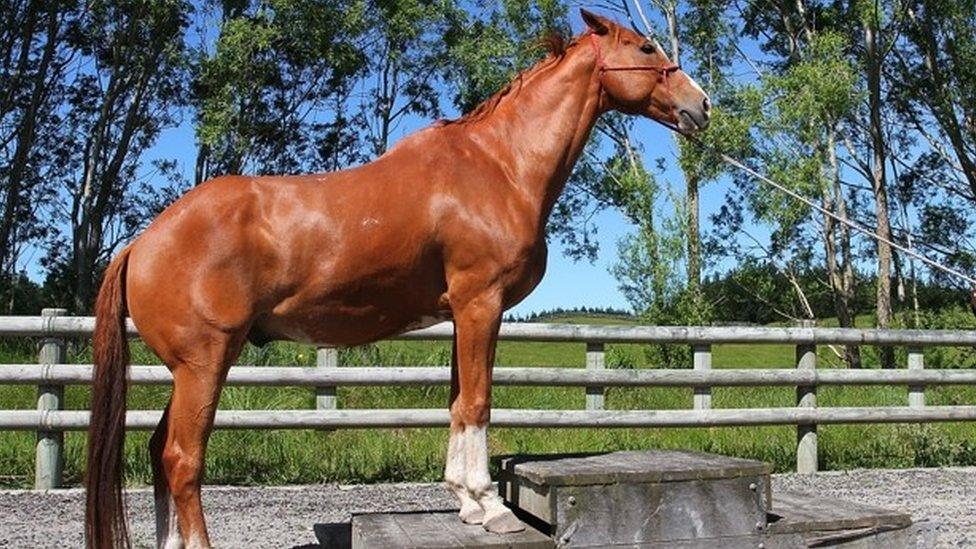
- Published27 February 2018
